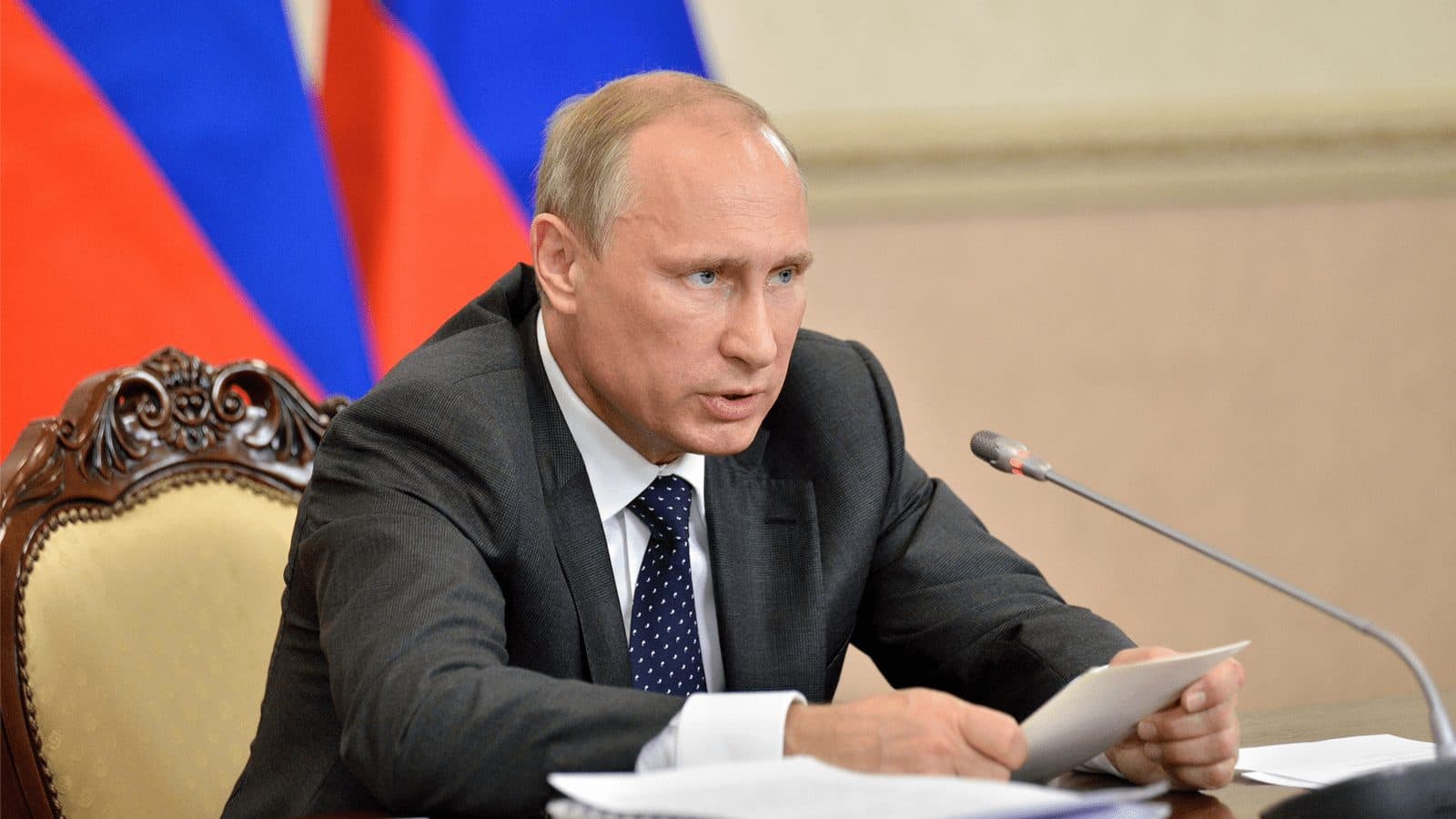As Russia Tests Digital Ruble, Plans for Broader Crypto Regulation Are Uncertain
The country’s finance minister reportedly hopes bill detailing crypto regulation will pass by end of year

Russian President Vladimir Putin | Source: Shutterstock
- Russia’s Ministry of Finance has reportedly begun accepting public comments on rules around digital asset transactions
- The Bank of Russia completed the prototype of its digital ruble platform in December, and 12 banks agreed to test the platform
As Russia mulls rolling out a state-sponsored digital ruble, crypto regulations more broadly remain up in the air amid clashes between the country’s central bank and finance ministry.
A crypto bill appears to still be in the works, and Russia’s Ministry of Finance has signaled that it is seeking public comments until March 18 on rules around digital asset transactions.
Nick du Cros, head of compliance and regulatory affairs at digital asset manager CoinShares, called the potential of a bill this year “a significant positive development.”
“The central bank doesn’t hold the pen on the draft legislation, so it will need to lobby very hard for the legislation to reflect its point of view,” du Cros told Blockworks. “As it looks now, the central bank’s view that there should be an outright ban on crypto and crypto mining looks less likely than Russian-centric regulation which allows crypto to exist with the current banking network.”
Russian Finance Minister Anton Siluanov said Friday that he hopes such a bill passes before the end of the year, according to Reuters.
The Russian government and central bank last week reached an agreement to draft legislation or amend existing laws recognizing crypto as currency. News outlet Kommersant reported that legislation would be drawn up by Feb. 18.
Bloomberg News reported that government officials at the Bank of Russia and the Ministry of Finance did not reach an agreement on the best path forward on Tuesday.
The central bank had previously proposed to restrict miners and crypto trading over concerns that they could endanger the country’s financial system. President Vladimir Putin has said he supports a plan to tax and regulate the space.
The Bank of Russia, meanwhile, launched a prototype of its digital ruble platform in December, with 12 banks agreeing to test it. Three banks have connected to the platform, the bank said Tuesday, with two completing digital ruble transactions between clients via mobile applications.
Focusing first on the digital ruble before opening up the system to other currencies could give the country a leg-up in the market, Stan Miroshnik, partner at growth equity fund 10T, told Blockworks.
Noting a parallel to China’s digital yuan, Miroshnik said the state-sponsored cryptocurrency helped phase out other speculative digital assets.
“To the extent you want to create your own dominant digital asset that the central bank has control of…I think that’s the playbook,” Miroshnik said. “I think that’s the tension we’re seeing playing out.”
The latest draft legislation has been published while the G-20 Finance Ministers and Central Bank Governor Meeting takes place, du Cros said, adding that the timing indicates Russia is more interested in “bespoke” regulations over international crypto standards.
The Bank of Russia and Ministry of Finance did not immediately return a request for comment.
Ukraine passed amendments to its law on digital assets to ratify the eventual creation of a legal market for cryptocurrencies as the threat of an invasion by Russia looms.
Get the news in your inbox. Explore Blockworks newsletters:
- The Breakdown: Decoding crypto and the markets. Daily.
- 0xResearch: Alpha in your inbox. Think like an analyst.






